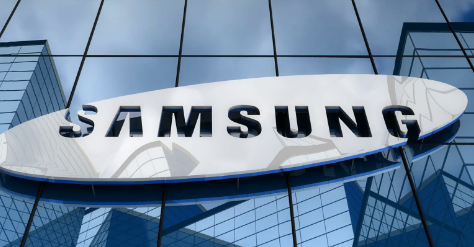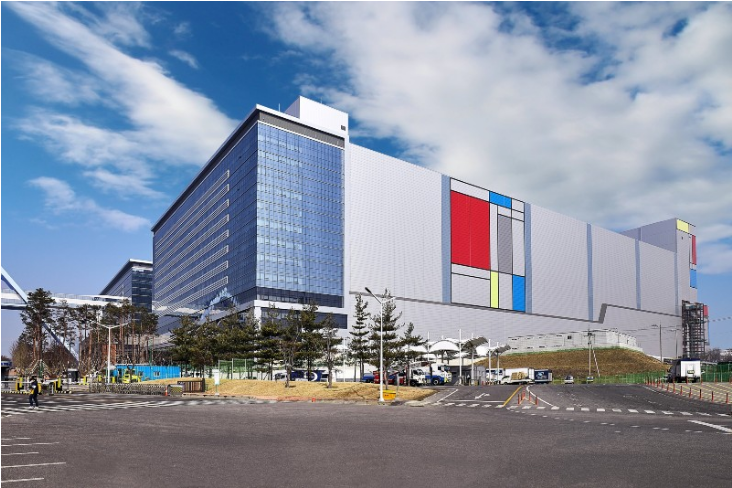China demands Samsung, SK cut chip prices
Senior Chinese government officials have asked Samsung Electronics and SK hynix to cut memory chip prices for leading Chinese consumer electronics companies, sources familiar with the matter said Monday.
"Officials at China's commerce ministry and anti-trust agency asked Samsung Electronics and SK hynix to cut the prices of DRAM chips they sell to Chinese technology companies. Samsung representatives met with Chinese officials, the results of which were notified to Korea's trade ministry. SK hynix is keeping an eye on further developments on the price issue," a high-ranking government official said.
Samsung Electronics declined to comment. No latest updates are available.
The requests were apparently made due to China's concern over the continuing price increases for DRAMs, which are used in all digital devices.
Chinese PC makers have been struggling under component cost pressure as Samsung and SK control over 75 percent of global demand as of the first quarter of 2018. China says it wants to ensure "fair competition" in the market, so that no single supplier becomes too dominant and manipulates prices.
The two Korean companies are most likely to be investigated due to "limiting the amount of products for sale" as a violation of antitrust laws, said market researchers. If Samsung and SK pay a fine, it will be a one-time event.
Sources at Samsung and SK say "price correction" isn't the only reason behind the latest action by China, adding it may want more cross-licensing with the Korean pair.
China has been keen to establish a foothold in the semiconductor industry, as it looks to move into high-value manufacturing and maintain national security with "Made in China" components.
Samsung, SK and Intel of the United States have established memory fabrication facilities in China over the past decade thanks to lower labor costs and favorable tax policies.
"However, China is dissatisfied with the South Korean firms as they have been highly protective with less cross-licensing and often use older technology _ two or more generations behind _ to safeguard their intellectual property rights," said a Samsung source on the condition of anonymity as he wasn't authorized to officially speak to the media.
"With several failed efforts to acquire memory technology from the two companies, China wants to protect its companies from any sudden fallout by helping them save chip procurement costs from major suppliers. I believe more will happen as technology is critical to the cost structure in the memory chip industry," an SK source said.
The indigenous memory technology in China remains three to five years behind that of the Korean companies. Lagging in competition by one generation often implies at least a 30 percent cost disadvantage. After factoring in the more rapid wafer density growth, Samsung and SK, for example, are expected to maintain a minimum five-year advantage in wafer density.
"This implies significant losses for new entrants in an oversupply scenario that China doesn't really want to see," said the source.
DRAMeXchange, a leading market research firm, anticipates such anti-trust investigations may happen again, and that may restrain price increases.
在线留言询价

Samsung cuts NAND flash memory production

Samsung is developing next-generation memory chips for large-scale AI applications such as ChatGPT
- 一周热料
- 紧缺物料秒杀
| 型号 | 品牌 | 询价 |
|---|---|---|
| BD71847AMWV-E2 | ROHM Semiconductor | |
| MC33074DR2G | onsemi | |
| CDZVT2R20B | ROHM Semiconductor | |
| TL431ACLPR | Texas Instruments | |
| RB751G-40T2R | ROHM Semiconductor |
| 型号 | 品牌 | 抢购 |
|---|---|---|
| STM32F429IGT6 | STMicroelectronics | |
| TPS63050YFFR | Texas Instruments | |
| ESR03EZPJ151 | ROHM Semiconductor | |
| BP3621 | ROHM Semiconductor | |
| IPZ40N04S5L4R8ATMA1 | Infineon Technologies | |
| BU33JA2MNVX-CTL | ROHM Semiconductor |
- 周排行榜
- 月排行榜
AMEYA360公众号二维码
识别二维码,即可关注


请输入下方图片中的验证码:
![[News] Samsung Fails to Secure Qualcomm’s 3nm Orders for the Coming Year, Dual Foundry Strategy Postponed [News] Samsung Fails to Secure Qualcomm’s 3nm Orders for the Coming Year, Dual Foundry Strategy Postponed](https://res.ameya360.com//basedata/oldassets/images/20231201/20231201145007_507.png)























